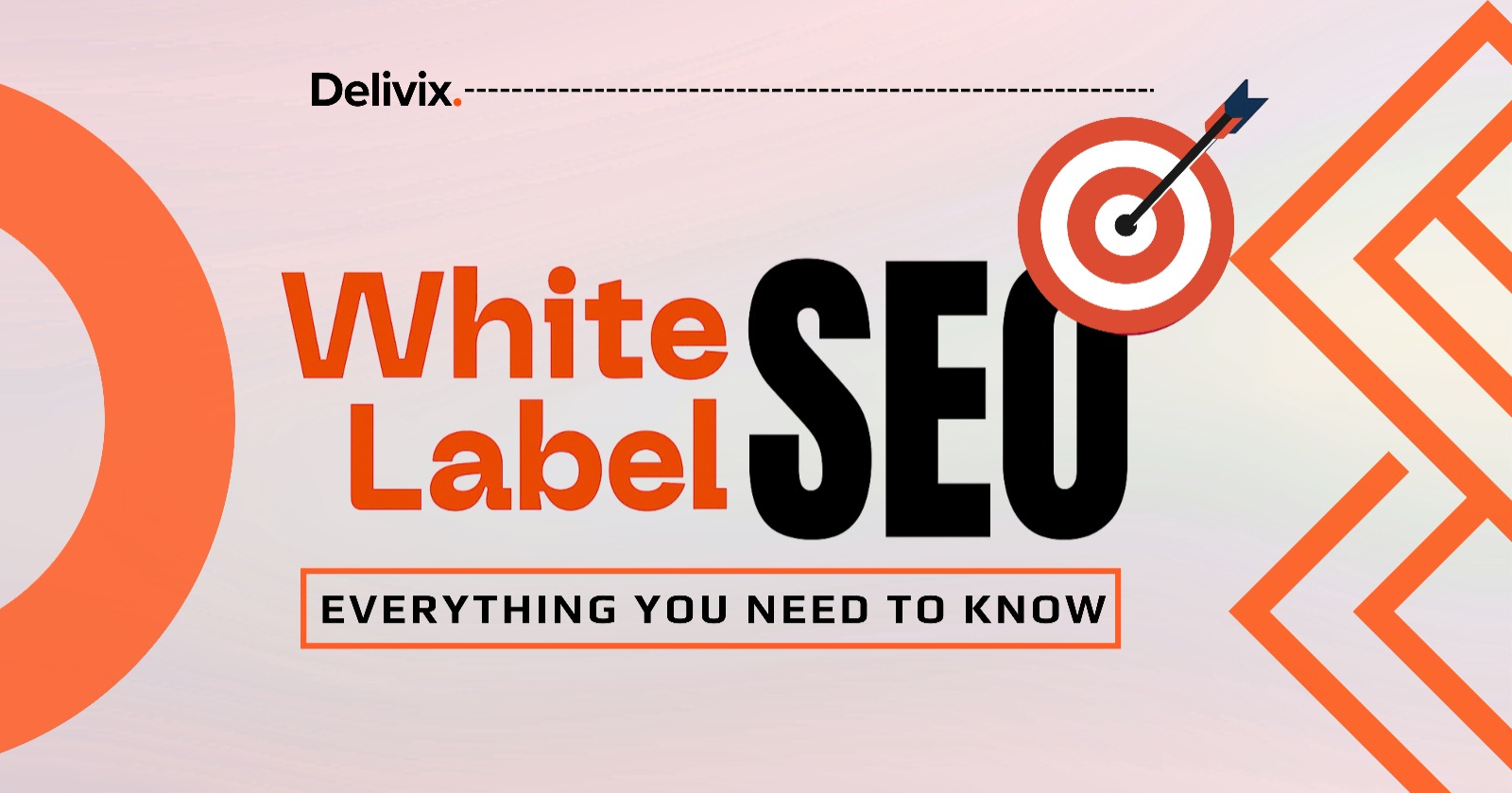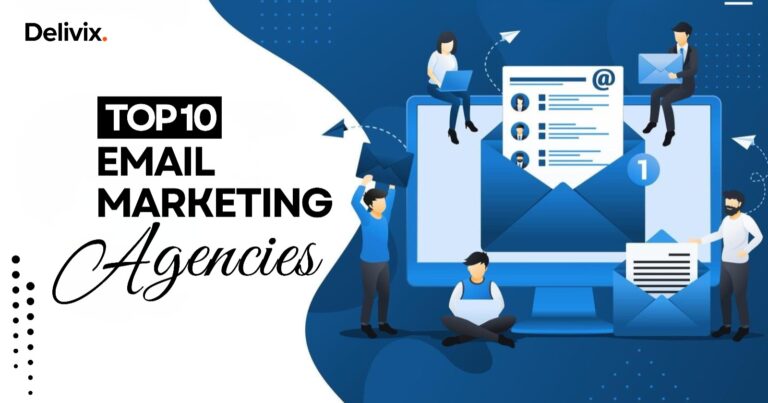If you are a digital marketer, agency owner, or even a freelancer, chances are that you have heard the term “White Label SEO” floating around. It might sound like a complicated buzzword, but it is actually one of the smartest ways to scale your business and get leads from Google and other sources, without blowing your budget or burning out your team.
Here are some key statistics related to white label SEO.
- The broader white label market is also experiencing a surge, with some segments showing a CAGR of up to 25.3%.
- Agencies using white label services have reported a 25% faster turnaround on client projects, leading to higher client satisfaction.
- Automated reporting alone can save an agency 5-10 hours per client per month.
But what is white label SEO, and how does it work? Let’s look into it.
What is white label SEO
White Label SEO is when a company offers SEO services under your brand name, but they do all the work behind the scenes.
You sell SEO.
They do SEO.
However, your clients think it is all you.
It is just like hiring a ghostwriter for a book where you put your name on it, but someone else wrote the chapters.
There are many benefits of white label SEO, such as:
- You do not need to spend hours doing SEO and GEO work yourself.
- No need to hire full-time SEO experts or invest in expensive tools.
- You can serve more clients without adding staff or infrastructure.
- You can add SEO to your menu of services without learning it from scratch.
- Focus on sales and client relationships while experts handle the technical side.
How does white label SEO work
White label SEO is like having a secret team of SEO experts working behind the curtain while you take centre stage. You manage the client relationship, and your SEO partner handles the actual work, all under your brand.
Here is a step-by-step breakdown of how it works, with a little more depth:
Step 1: You Get a Client
You attract and close a client who needs SEO services. This could be local SEO, an eCommerce site, a blogger, or a corporate client. You package and sell SEO solutions under your brand, even though you are not doing the SEO work yourself.
Your client thinks you will be managing everything, which is true, just not directly.
Example: A business owner contacts your agency asking for help with Google rankings. You sell them an SEO package priced at $1,000 per month.
Step 2: You Partner with a White Label SEO Provider
Once the deal is closed, you outsource the work to your trusted white label SEO provider. This provider can be a freelancer, an agency, or a specialised company that offers SEO fulfilment services.
They become your “backend team”, but your client never interacts with them. Communication flows only through you.
Step 3: They Do the Work
Your white label SEO partner handles all the technical and time-consuming parts of SEO, such as:
- Keyword research and competitive analysis
- On-page optimisation (meta tags, content, etc.)
- Link building and outreach campaigns
- Technical audits and fixes
- Local SEO setup (if relevant)
- Creating blog content or landing pages
They will usually provide a roadmap or strategy, which you can review and present to the client as your own plan.
Step 4: They Send You Branded Reports
The SEO provider sends you regular white label reports, which are:
- Fully branded with your logo, colours, and company name
- Packed with performance data (rankings, traffic, backlinks, etc.)
- Easy for you to understand and share with the client
Some providers even offer a live dashboard that your clients can access, again, under your branding.
Step 5: You Deliver the Results to the Client
Now it is your time to shine. You meet with the client, go over the report, and explain the progress being made.
From the client’s perspective:
- You are the one doing all the work.
- You are the expert.
- You are the reason their rankings are improving.
They have no idea that a white label team is working in the background, and they do not need to know.
What to look for in a white label SEO agency
Not all white label providers are created equal. This is what to check before you sign any contracts:
1. Proven Track Record & Credibility
Before trusting any agency with your clients’ SEO, you need proof that they know what they are doing. Look for:
- Case studies that show real client success stories.
- Verified reviews on sites like Clutch, Google, G2, etc.
- Portfolios with detailed examples of SEO strategies and results.
- Testimonials from other agencies that have used their services.
2. Transparent and Fair Pricing
Avoid SEO providers with overly complex pricing models, sneaky upsells, or vague deliverables. You need clear, upfront answers to:
- What’s included in each package?
- Are there any setup fees or long-term contracts?
- Are results guaranteed (if so, how)?
- What happens if you want to pause or cancel?
3. White-Labeled Reporting & Branding
Your clients should never know you are outsourcing the work. That’s why white labelling is so important. Your provider should offer:
- Branded monthly SEO reports with your logo and colours.
- A white-labelled client dashboard (bonus points for live tracking!).
- Custom domain or portal branding (some even allow white-labelled email notifications).
4. Dedicated Account Manager
Having a single point of contact is a game-changer. Instead of dealing with different people for every issue, a dedicated account manager will:
- Understand your clients’ goals and history
- Keep you updated on campaign progress
- Help you troubleshoot any issues quickly
- Save you time managing the back-and-forth
5. Scalability
Today, you might have three clients. Next quarter, you could have 30. Your SEO partner needs to be ready to grow with you, without delays or a drop in quality. Look for a provider who:
- Can handle both small and enterprise-level campaigns
- Offers volume-based discounts or custom packages
- Has enough manpower and bandwidth to manage scale
- Uses systems and processes that support high-volume output
6. Clear Communication & Workflow
You are the go-between for your client and the SEO provider, which means communication must be fast, clear, and consistent.
- Fast response times (live chat, Slack, or phone are a plus)
- Clear onboarding process and timelines
- Easy project management or client portal access
- Regular updates and reports without chasing them
7. Ethical, White-Hat SEO Practices
Some white label providers cut corners with spammy tactics. If Google penalises your client’s site, you take the heat.
- Do you use white-hat SEO techniques?
- How do you build backlinks?
- How do you stay updated with Google algorithm changes?
Top 6 white label SEO services to check out – Comparison chart
| Provider | Turnaround Time | Client Reporting | Customisation | Support | Best For |
|---|---|---|---|---|---|
| Delivix | Fast, often within days | Fully branded, customisable | High – Services tailored to each client | Dedicated account managers + live support | Best overall, Ideal for growing agencies that value speed, quality & control |
| SEOReseller | Standard (5-10 business days) | White-labelled reports | Limited templates | Email + ticket-based | Good for smaller agencies starting out |
| The HOTH | Moderate | Clean, simple dashboard | Basic customization | Decent, can be slow | Scalable SEO with DIY options |
| Vendasta | Slower with onboarding | Integrates with a full SaaS stack | Extensive but complex | Strong support team | Great for agencies offering multiple services |
| DashClicks | Quick once onboarded | Automated dashboard & reports | Moderate | Chat support available | Solid option for automation-focused businesses |
| WebFX | Slower, enterprise focus | High-end, polished reporting | Limited unless the enterprise | Enterprise-level support | Best for large agencies with high-paying clients |
Also read: top social media agencies
Who should use white label SEO
Want to know if white label SEO is the right step for you? Here are the top agencies that should use the solutions.
| Marketing Agencies | Add SEO services without building a new team. |
| Freelancers | Expand your services and income streams. |
| Web Designers/Developers | Upsell SEO to existing clients. |
| PR or Ad Agencies | Offer full-suite digital services under one roof. |
| Business Consultants | Provide more value to your client base. |
If you want to:
- Add SEO services without hiring in-house
- Scale your business and take on more clients
- Offer a full-service solution, including answer engine optimisation, to your clients
- Stay focused on sales and strategy
Then yes, white label SEO is a no-brainer.
But go in with open eyes:
- Vet your provider thoroughly.
- Understand what’s being delivered.
- Communicate clearly with both your clients and your SEO team.
Challenges of white label SEO
It is not all sunshine and rankings. There are some things to watch out for:
| Challenge | Why It Matters | Solution |
|---|---|---|
| Communication Delays | You are not the one doing the work. | Choose a provider with great support. |
| Quality Control | Not all providers maintain high standards. | Regularly audit the work and ask for samples. |
| Lack of Transparency | Hard to explain things if you are not involved. | Learn enough SEO to stay in the loop. |
| Over-reliance on Provider | Business halts if the provider disappears. | Diversify or have backups ready. |
White Label SEO Tools and Reporting
A big part of white label SEO is reporting. Your clients want to see results. Luckily, many providers offer ready-made, branded dashboards and tools.
| Tool | Purpose |
| SEMrush | Keyword tracking, competitor analysis |
| Ahrefs | Backlink monitoring |
| AgencyAnalytics | Full client reporting dashboard |
| Google Data Studio | Custom SEO reports and dashboards |
| BrightLocal | Local SEO audits and citations |
Frequently asked questions
The most common questions we get asked.
- Keyword research and strategy
- On-page SEO (content, tags, structure)
- Technical SEO audits
- Link building and outreach
- Local SEO optimisation
- SEO content creation
- Monthly reports and analytics


